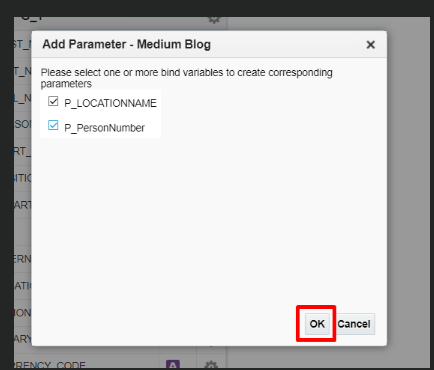
OTBI, Oracle Transactional Business Intelligence, is the abbreviation for it. It is a business intelligence tool provided by Oracle. OTBI is a platform that integrates with Oracle’s cloud-based application suites, allowing users to analyze business data, create reports, and develop business intelligence solutions.
Among Oracle’s cloud-based application suites are products like Oracle Fusion Applications. OTBI is used to visualize, understand, and report on the business data obtained from these application suites. Users can create customizable reports, perform data analysis, and develop business intelligence solutions through OTBI.
Security
Role-Based Access Control (RBAC):
Roles on Oracle Fusion Applications are fundamental elements that determine the reports and analyses users can access within OTBI.
RBAC controls data access based on permissions associated with a specific role, assigning each user to a particular role.
Data Security:
OTBI provides users with access to specific datasets.
At the data security level, it is used to restrict access to specific rows or data segments.
Security Profiles:
Security profiles are configurations that determine the access level to a specific report or analysis.
Security profiles assigned to users or user groups control their access to specific reports or datasets.
Duty Roles:

Duty roles are units that group users with multiple authorizations.
These roles determine the overall functionality and permissions of users, allowing them to focus on specific tasks.
Custom Security Policies:
OTBI supports customizable security policies to align with the needs of organizations.
You can create custom security rules based on specific requirements.
Scoping Analyses
Scoping Analyses in Oracle Transactional Business Intelligence (OTBI) refers to the process of determining the scope of specific analyses within the system. This process enables users to define the filters and conditions needed to analyze a particular dataset or generate a report.
Definition of Analysis Scope:
OTBI Scoping Analyses allow users to define the scope of their analysis. This involves users deciding which dataset, time range, or business unit data they want to focus on.
Filtering and Conditions:
Users can add filters and conditions to focus on specific datasets. Filters ensure that the analysis includes only specific data segments, enabling more customized and focused results.
Setting Time Range:
Analysis scope allows users to focus on a specific time range. Users can analyze or generate reports based on data within a specific date range.
Custom Segmentation and Grouping:
OTBI enables users to perform custom segmentation and grouping in their analyses. It allows for a more in-depth analysis by grouping or segmenting data in a specific analysis based on certain criteria.
Analysis Parameters:
Users can specify the necessary parameters to execute specific analyses.
Parameters allow users to customize how the analysis operates and which datasets it includes.
Subject Areas
Subject Areas in Oracle Transactional Business Intelligence (OTBI) represent pre-defined data concepts provided to users through tables, views, and relationships in the OTBI database. These concepts are created to facilitate users in performing business intelligence analyses and reporting.
Pre-Defined Structure of Data:
OTBI Subject Areas provide users with a pre-defined framework to understand complex structures in the database.
This allows users to analyze data without the need for detailed SQL knowledge, making it easier for them to comprehend the complexity within the database.

Relational Data Modeling:
Subject Areas define relationships between tables and views in the database.
Users can use these relationships to join and associate different data tables.
Categorical and Thematic Concepts:
Subject Areas encompass data sets focused on specific categorical or thematic concepts.
These concepts are organized to support specific business processes or functionalities.
Ready-Made Report and Analysis Templates:
OTBI Subject Areas offer users pre-defined report and analysis templates.
Users can quickly answer specific business questions and conduct analyses using these templates.
Data Segmentation:
Users can add custom filters and conditions to segment and analyze data within a specific Subject Area.
This is used to narrow down and focus on specific analyses or reports.
Filters

It is an important feature within Oracle Transactional Business Intelligence (OTBI) that users utilize to filter and analyze datasets.
Users can make their analyses more specific by filtering datasets based on certain conditions.
Filters can be graphically set through OTBI’s user-friendly interface. This helps users visually understand their datasets and conduct analyses more effectively.
Users can create their filter combinations and apply these filters to their analyses.
Selection Steps
It represents the process within Oracle Transactional Business Intelligence (OTBI) where users select and customize the dataset while creating analyses. These steps focus on determining the foundational dataset that forms the basis of the analysis and selecting the desired analytical concept.

While OTBI Selection Steps involve users choosing the foundational dataset and determining the analysis concept, Filters represent the stages where users limit and focus the selected dataset based on specific conditions. By using both in conjunction, users can obtain more precise and customized analysis results for specific business questions.




No Comments